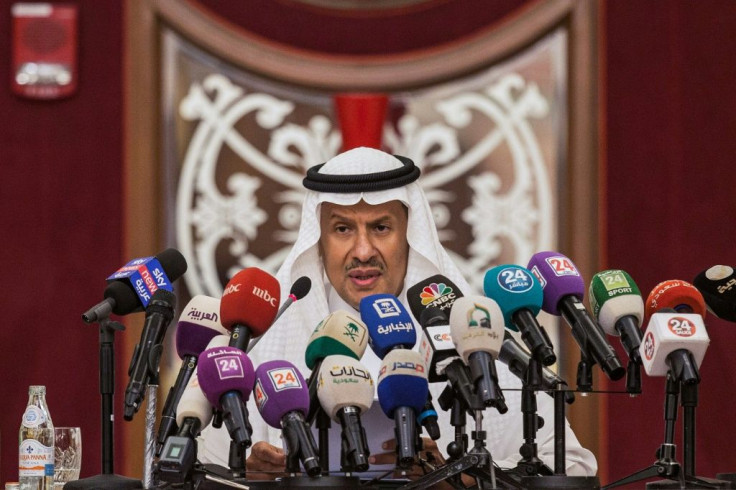Saudi Arabia Oil Attack: Evidence Mounts That Iran Fired Cruise Missles

U.S. officials said Tuesday the weekend attack on Saudi oil facilities at Abqaiq was launched from Iran and involved cruise missiles.
Yemen’s Iran-backed Houthi rebels had claimed responsibility for the attack, which halved daily Saudi oil output and cut the world’s oil supply by about 5%. By Tuesday, Saudi Arabia reported 50% of the production lost in the attack had been restored and production capacity should be back up to 11 million barrels a day by the end of the month. The facility had been producing 9.6 million barrels a day before the attack.
The runup in oil futures triggered Monday abated Tuesday as fears were calmed.
More than 20 drones and cruise missiles reportedly were fired from Iranian territory and at least one of them traversed Kuwaiti airspace. Pentagon officials were preparing a report on who was responsible for the attack on the largest oil processing facility in the world and nearby oil fields as U.S. Secretary of State Mike Pompeo headed to Saudi Arabia to discuss a response.
A Saudi military official said Monday the weapons were Iranian in origin. U.N. inspectors were said to be headed to the area.
The New York Times reported U.S. intelligence analysts were examining a missile guidance mechanism recovered after the attack for clues on its flight path. Satellite imagery and radar tracks also were under review as well as communication intercepts.
Intelligence experts have ruled out Iraq as well as Yemen as the origin of the attacks, leaving Iran or a vessel in the Persian Gulf as the staging area, the Times said.
Both Pompeo and Defense Secretary Mark Esper have said they believe Tehran was responsible, but President Trump tried to tamp down the rhetoric after first tweeting that the U.S. was “locked and loaded” and just awaiting confirmation from Riyadh, which appeared in no hurry to point fingers.
“The kingdom will take appropriate measures based on the results of the investigation,” a statement from the Foreign Ministry said.
Trump said Monday he does not want war with Iran. He had been angling for face-to-face talks with Iranian Prime Minister Hassan Rouhani on the sidelines of the U.N. General Assembly next week, but Supreme Leader Ali Khamenei said Tuesday there would be no talks.
Lawmakers were given a three-page classified intelligence document detailing the attack. Sen. Ron Johnson, R-Wis., said it left him convinced Iran was responsible. Sen. John Barrasso, R-Wyo., said though he’s convinced Iran was behind the attacks, he’s against military action, opting instead for sanctions.
"As of this point, no. I think we need to continue with the sanctions," he told CNN. "They are biting. They are punishing. They're making a difference."
Rep. Ilhan Omar, D-Minn., one of the four congresswomen Trump likes to demonize, said she’s not as easily convinced. “I think we need to make sure that the American people understand that this administration that lies about weather maps or crowd sizes cannot be trusted to give us the full information we need to be able to make a decision whether we should be going to war or not with Iran,” she said.
© Copyright IBTimes 2024. All rights reserved.






















